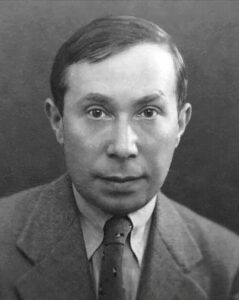Sobre Apología y Critón Strūthiō 011
Parte de:
«Sobre la Apología de Sócrates y el Critón de Platón» / I

Leōnardus Strūthiō (1899-1973)
ĒRVDĪTIŌRIBVS ***
Versiō hispānica Aemiliā Aquadītī auctrīce 11
[Nota: La versión más inteligible del daimonion se encuentra en el Téages, un diálogo hoy generalmente considerado espurio. En él, Téages y su padre intentan convencer a Sócrates de «estar junto» al joven Téages, que desea llegar a convertirse en un estadista ateniense destacado. Sócrates se declara inútil para ese objetivo, puesto que no entiende nada de las cosas benditas y nobles que Téages necesita: sólo entiende de una pequeña parcela de conocimiento, a saber, las cosas eróticas; en ese tema, afirma tener una capacidad sobresaliente. Téages considera que Sócrates está bromeando; este sencillamente no quiere pasar su tiempo con él como lo hace con algunos de sus contemporáneos, quienes mejoran de manera notoria gracias a su intercambio con Sócrates. A continuación, este último deja de hablar en forma abrupta de que es un ἐρωτικός (erotikos) y no vuelve a tocar el tema; se refiere, en cambio, a su daimonion (δαιμόνιον). El daimonion le insinúa lo que él y sus amigos deben abstenerse de hacer. Le sugiere, en particular, con qué personas (jóvenes) no debería pasar el tiempo: no puede pasar el tiempo con ellos. Es cierto que el silencio del daimonion no alcanza a garantizar que el intercambio con los individuos en cuestión les sea provechoso. Pero cuando el poder del daimonion contribuye a que estén juntos, se logra un progreso inmediato. Sócrates aduce como ejemplo lo que en una ocasión le contó Arístides sobre sus experiencias con él: nunca aprendió nada de Sócrates, pero el hecho de estar junto a él en la misma casa, preferentemente en la misma habitación y, aún mejor, sentado a su lado y tocándolo, fue de un provecho maravilloso. Si el daimonion o los dioses no se oponen a que Sócrates esté junto a Téages, este puede tener una experiencia similar: nunca aprenderá nada de Sócrates. Sócrates apela a su daimonion después de que el recurso a su condición de ἐρωτικός no ha dado resultado; el daimonion reemplaza su carácter de ἐρωτικός porque cumple la misma función: porque es lo mismo. Sócrates no puede sacar provecho de estar junto a personas que no son prometedoras, que no le resultan atractivas. Pero no pocos de los que no le atraen se sienten atraídos por él. No puede explicar bien su negativa a estar con ellos si dice que no los «ama»: se refiere a un poder misterioso ante el cual todos deben inclinarse y al que no se le pueden formular preguntas; el recurso al daimonion sólo es necesario para justificar negativas (a actuar). El daimonion es el aspecto prohibitivo y negador de la naturaleza de Sócrates, de sus inclinaciones naturales; su aspecto cabal o verdadero es su eros, como se explica en el Banquete: el eros es daimónico, no divino. «La naturaleza de los otros animales es daimónica, pero no divina […] Entonces, los sueños no serían enviados por el dios sino, en verdad, daimónicos» (Aristóteles, De divinatione per somnia, 463b14).]1Véase trad. cast. De «Acerca de la adivinación por el sueño», en Alberto Bernabé Pajares en la BCG: Acerca de la generación y la corrupción – Tratados breves de Historia natural, Madrid: Gredos, 1987.

Perge ad initium paginae huius
Leōnardī Strūthiōnis verba 11
[Note. The most intelligible account of the daimonion is found in the Theages, a dialogue now generally regarded as spurious. In that dialogue Theages and his father try to persuade Socrates to “be together” with young Theages who wishes to become an outstanding Athenian statesman. Socrates declares that he is useless for that purpose since he understands nothing of the blessed and noble things which Theages needs; he understands only a small piece of learning, namely, the erotic things; in this subject he claims indeed to be of outstanding competence. Theages finds that Socrates is jesting: he simply does not wish to spend his time with Theages as he does with some of Theages’ contemporaries who improve greatly thanks to their intercourse with Socrates. Thereupon Socrates ceases at once to speak of his being an ἐρωτικός (erotikos) and never returns to that subject; instead he speaks of his daimonion (δαιμόνιον). The daimonion intimates to him what he and his friends should refrain from doing. It intimates in particular with which (young) people he should not spend his time: he cannot spend his time with these. It is true that the silence of the daimonion does not yet guarantee that his intercourse with the individuals concerned will be profitable for them. But when the power of the daimonion contributes to the being together, instant progress is achieved. Socrates adduces as an example what Aristeides once told him about his experiences with him: he never learned anything from Socrates; but, being together with him in the same house, preferably in the same room, still more preferably sitting at his side and touching him, he was marvellously profited. If the daimonion or the gods do not oppose Socrates’ being together with Theages, the latter may have a similar experience: he will never learn anything from Socrates. Socrates has recourse to his daimonion after the recourse to his being ἐρωτικός was of no avail; his daimonion replaces his being ἐρωτικός because it fulfils the same function—because it is the same. Socrates cannot profitably be together with people who are not promising, who are not attractive to him. But not a few who are not attractive to him are attracted by him. He cannot well explain his refusal to be together with them by saying that he does not “love” them: he refers to a mysterious power to which everyone must bow and which cannot be asked questions; recourse to the daimonion is needed only for justifying refusals (to act). The daimonion is the forbidding, the denying aspect of Socrates’ nature, of his natural inclinations; its full or true aspect is his ἔρος (eros) as explained in the Symposium: eros is daimonic, not divine. “The nature of the other animals is daimonic, but not divine… Dreams then would not be god-sent but indeed daimonic” (Aristotle, De div. per somnia, 463b14).]

Perge ad initium paginae huius
Iūra
El texto en lengua inglesa fue publicado de manera póstuma en un volumen en honor al prof. Jacob Klein: Essais in Honor of Jacob Klein (Annapolī, ē Typographeō Acadēmīae Sānctī Iōhannis MCMLXXVI). Aunque nosotros tomamos como base lo aparecido en una antología dedicada a escritos del prof. Strūthiō en inglés en 1983: Studies in Platonic Political Philosophy (Sicagī, ē Typographeō Ūniversitātis Sicagī MCMLXXXIII). La versión castellana es obra de Aemilia Aquadīs, aparecida en la traducción del volumen mencionado anteriormente (Bonāeropolī, ē Typographeō Amōrrortī MMVIII). La publicación de estos fragmentos promueve la difusión en castellano de la obra del profesor Leōnardus Strūthiō con fines académicos y de formación. Conminamos a visitar su biblioteca más cercana o adquirir el volumen físico en su librería de confianza.

Perge ad initium paginae huius
ĒRVDĪTIŌRIBVS ***
